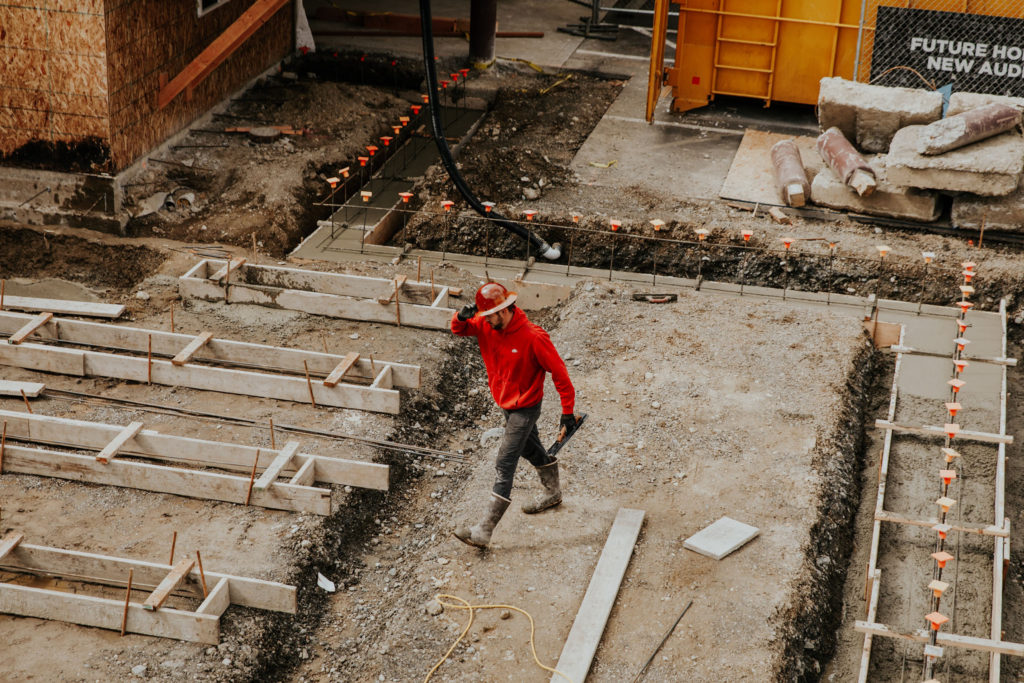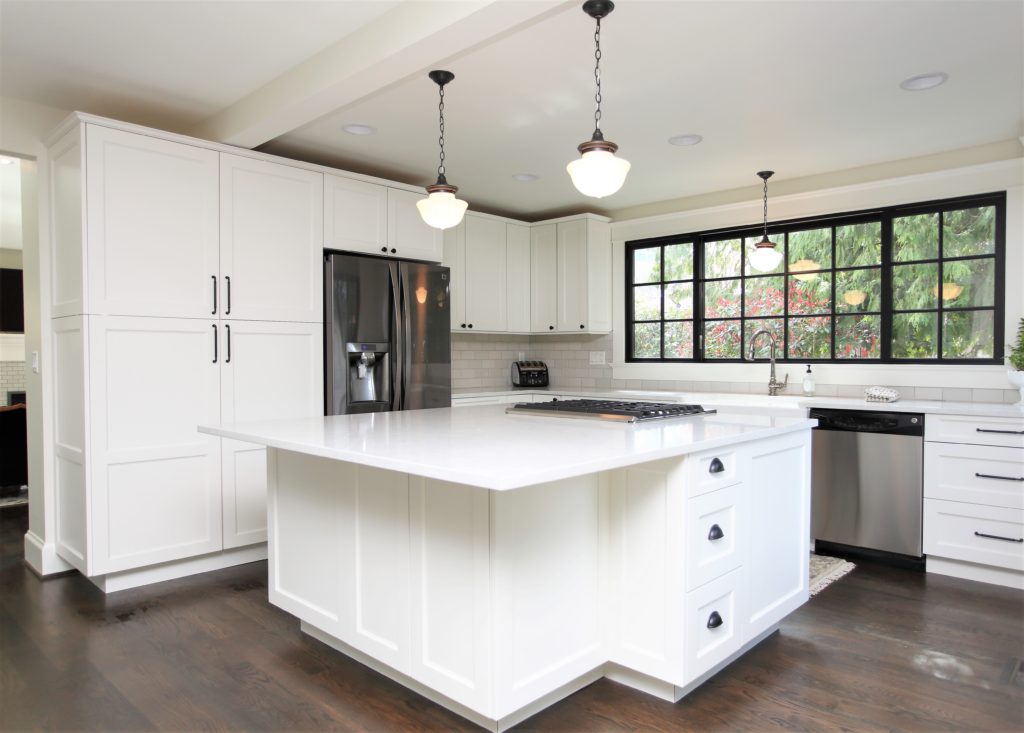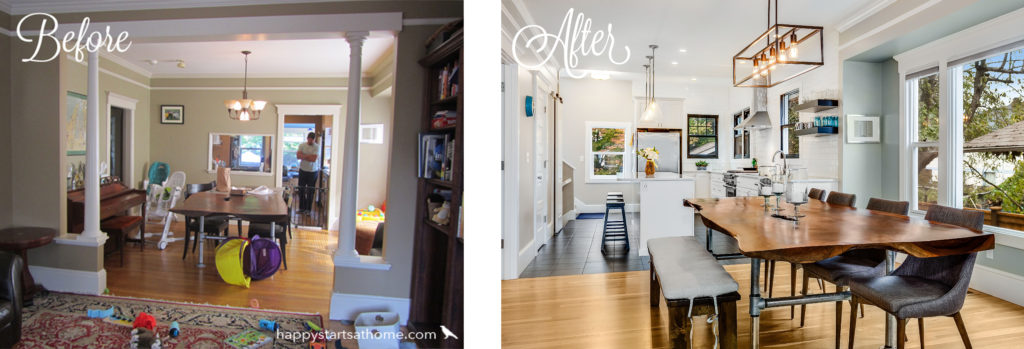What To Ask Your General Contractor (before you hire them)
What To Ask Your General Contractor (before you hire them)

Eager to get happy at home right now?
Get 10 tips for a happier home!
Planning to hire a general contractor?
You’re about to trust your home and a LOT of money to a stranger, but if you do your due diligence and ask good questions, you’re a lot more likely to make a great choice of general contractor!
Read on for twelve questions to ask your general contractor before you hire them to ensure your project is a success!
(Don’t miss #12 – it’s the most important!)
![]()
1. How long have you been in (this) business?
Why this matters: Have they been running *this* business for 20 years, or are they a new business owner with have 20 years of experience *in the industry*? If you have found a contractor with lots of industry experience but little business experience, you either just hit a goldmine (newer businesses tend to charge less) or a landmine (maybe they are a great contractor, but a terrible project coordinator).
Lack of time in business doesn’t mean you shouldn’t hire them, but maybe consider using them for a smaller project first. Being *in business* for 20 years means the contractor not only has experience building stuff, but has also worked out the kinks in their business (ie: they know how to accurately estimate project timelines and costs, and have an established subcontracting team that works together seamlessly). Keep in mind, a person that has been in business doesn’t necessarily ensure quality work or that they run their business well – getting references is still key (more on that later!).
2. How familiar are you with my kind of home and project type?
Why this matters: You want your contractor to be familiar with the age and style of your home, especially if you wish to stay true to the character of that time period. We adore the beautiful craftsman homes in Seattle that were built in the 1920’s and ’30s, but these decades-old homes can come with their own set of problems such as asbestos and lead abatement, along with outdated plumbing and electrical wiring that can really increase the scope of even a small project.
Planning to open up a few walls? You want a contractor who knows and trusts their structural engineer. Live in a condo? You’ll have to have your remodel approved by the HOA or condo association, and some contractors may not even take on a condo remodel for that reason. Choosing a contractor who’s already been around the block a few times on your kind of project helps avoid a whole slew of potential problems!
3. How long do you think it will take you to complete this project? And how often do you go over your estimated timelines?
Why this matters: While we all wish that a remodel would be as easy as watching an episode of Fixer Upper on HGTV (we could dream!) it’s rare that a project will go smoothly without any hiccups from start to finish. Hiccups are a reality, and not *necessarily* the fault of your contractor.
What’s key is finding *why* the projects took more time than expected. Was it because the client kept changing their mind? (That’s the client’s fault for the project getting extended.) Did subcontractors not show up as scheduled? (That’s a GC not doing a great job of hiring, communicating, and coordinating.) Was a box of tile not opened until the day of install, discovered to be the wrong tile, thus delaying the installation and all the sub-contractors scheduled next in line? (That’s the GC not thinking *ahead* of problems.) Or was it simply unforeseeable complications, like unexpected and extensive termite damage? (It happens.)
Asking how long your project should take, and *also* asking how often this contractor stays on schedule, can help you figure out if this is the contractor for you, and anticipate how you, as the client, can help your project not go over.

4. How often are *you* (the general contractor) on the job site, checking on the project?
Why this matters: Contractors are busy people and often have multiple projects they are overseeing. Find out who will be the point person for communication and problem-solving on your project. Will the General Contractor be on site each day? If not, will a specific project manager oversee your project? Be sure to know who you go to should a problem arise, and how to get in touch with them both during work hours, and in case of an emergency (eg, a burst pipe). The best GCs swing by their job sites often, checking on progress and giving you updates.
5. What do your estimates include?
Why this matters: You want to be sure you get a clear breakdown of costs covering labor, materials allowances, and contingency amounts. A clear and thorough estimate will not only help you compare the estimate with other contractors, but also make sure you’ve accounted for all the costs associated with the project.
Bear in mind that a contractor can only give an accurate and complete cost quote if you have a fully developed and detailed design plan. Without a clear project plan that spells out the scope of work and materials, each contractor will be making *very* different assumptions about the scope of work and providing *very* different allowances (are they thinking $5.00/sf or $50.00/sf tile?), therefore leaving you unable to effectively compare bids. (Hint: putting together complete design plans is *exactly* what our team does!)
6. Who pulls any required permits, and is the cost of those permits in your estimate?
Why this matters: Ideally the contractor will be familiar with the permitting likely required for your project and they will pull the necessary permits. Some contractors expect the client to take care of this, but really, the company doing the work *should* pull the permits. Even if you’re willing to do it, just be clear about who is in charge of getting that done, and if that cost is (or isn’t) covered in the estimate. Permitting can add a *lot* of time (and money) to a project if not handled well.
7. What does the work schedule look like?
Why this matters: A good contractor will have a clear schedule with specific times they will be at your property. You should also ask the following:
• How do they handle access to the property?
• How do they deal with your pets?
• How do they clean up the work environment?
8. What will the payment schedule be?
Why this matters: First and foremost, a contractor should not ask you to pay for the entire project upfront, and you should never pay a contractor before signing a contract that spells out the payment schedule. Generally, you will make a down payment (about 10%) and then the remaining payments are based on a schedule that coordinates with certain phases of the project being completed. Always be sure to keep copies of any payments made! And if your contractor is asking for money before agreed-to work is complete, check your gut. If it feels wrong, it may be wrong! Stop and assess before just handing off more money!

We came to help with this project while the client was already well into a remodel because the contractor recommended it!
9. Are you licensed, bonded, and insured?
Why this matters: Being licensed, bonded, and insured helps protect the homeowner. A license ensures that contractors are legally in business. Now, that doesn’t mean they do good work (that’s what calling references is for), it just means they can perform work in your state. Bonded protects the homeowner in the event that you have to make a claim against a company (ie: work not completed as stated in the contract). Being insured means that the contractor will have two types of insurance; liability insurance and workers’ compensation.
Liability will cover contractor-caused damage to the property, and workers’ compensation will cover injured workers for lost wages and medical bills regardless of how the injury occurred. Even if the contractor *says* they are licensed, bonded, and insured, a smart client will check that all three are current. Here’s a good place to start.
10. What (if anything) do you provide a warranty for?
Why this matters: A good contractor will provide a warranty that spells out what is covered (and for how long), and what is not covered. Take a look at this article that dives a little deeper into warranties.
11. Can you tell me about a time when you had a miscommunication with a client and how you handled it?
Why this matters: This is a tough question to ask but an important one. *Every* project will have its stress-points – it’s unavoidable in a project that requires so much communication and involves so much time and money. Knowing how your contractor resolved any disagreements or disputes can tell you a lot about them. Listen to their tone of voice and body language, and of course how they came to a resolution. Does this feel like a person you can be honest with, and that will let you have a voice at the table? You don’t need to be bullied by your contractor – you should feel like they are a partner in your project.
12. Can I contact three of your past clients?
Why this matters: Regardless if you are taking on a large kitchen or a small powder room remodel, you will be investing your hard-earned money and precious time. You want to be sure that you are hiring the best contractor for the job. Ask the contractor for references and CALL them (don’t assume they’ll be great – confirm! Check! Verify!). Here a few good questions to ask the references:
• Timing: Did the contractor start and finish when they said they would? If not, why not? And on a daily basis, what time did they show up and leave?
• Did they stick to the promised budget? If not, why not?
• Did they keep a tidy workplace? Were they good about locking up the house? Keeping pets safe?
• How did you resolve any issues that came up?
• How long has it been since you worked together? Still happy with the results?
• Would you hire this company again? If not, why? If so, what would you differently to make it an even better experience?
• Anything else you think I should know?
Want more advice on how to hire a great GC? Check out this blog, too!
Most importantly, always get a minimum of three estimates, do your homework, ask lots of questions, and trust your instincts. You’re a smart cookie and if your gut is telling you to hire someone else, listen to it. In the end, this is *your* home and *your* money. Want guidance from a design pro through the remodel process? That’s what we’re here for! Schedule a Design Helpline to chat with us over Zoom!
MAY YOUR HOME ALWAYS BE HAPPY!


HI, I'M REBECCA WEST!
I’m an interior designer, author, podcaster, speaker, and coach to other designers. (Whew!) But I’m not your classic interior designer because, frankly, I don’t care if you buy a new sofa. I do care if your home supports your goals and feels like “you.” Remember, happy starts at home!
More From Seriously Happy Homes
Are you ready for a seriously happy home?
(Cue the confetti!)

Eager to get happy at home right now?




